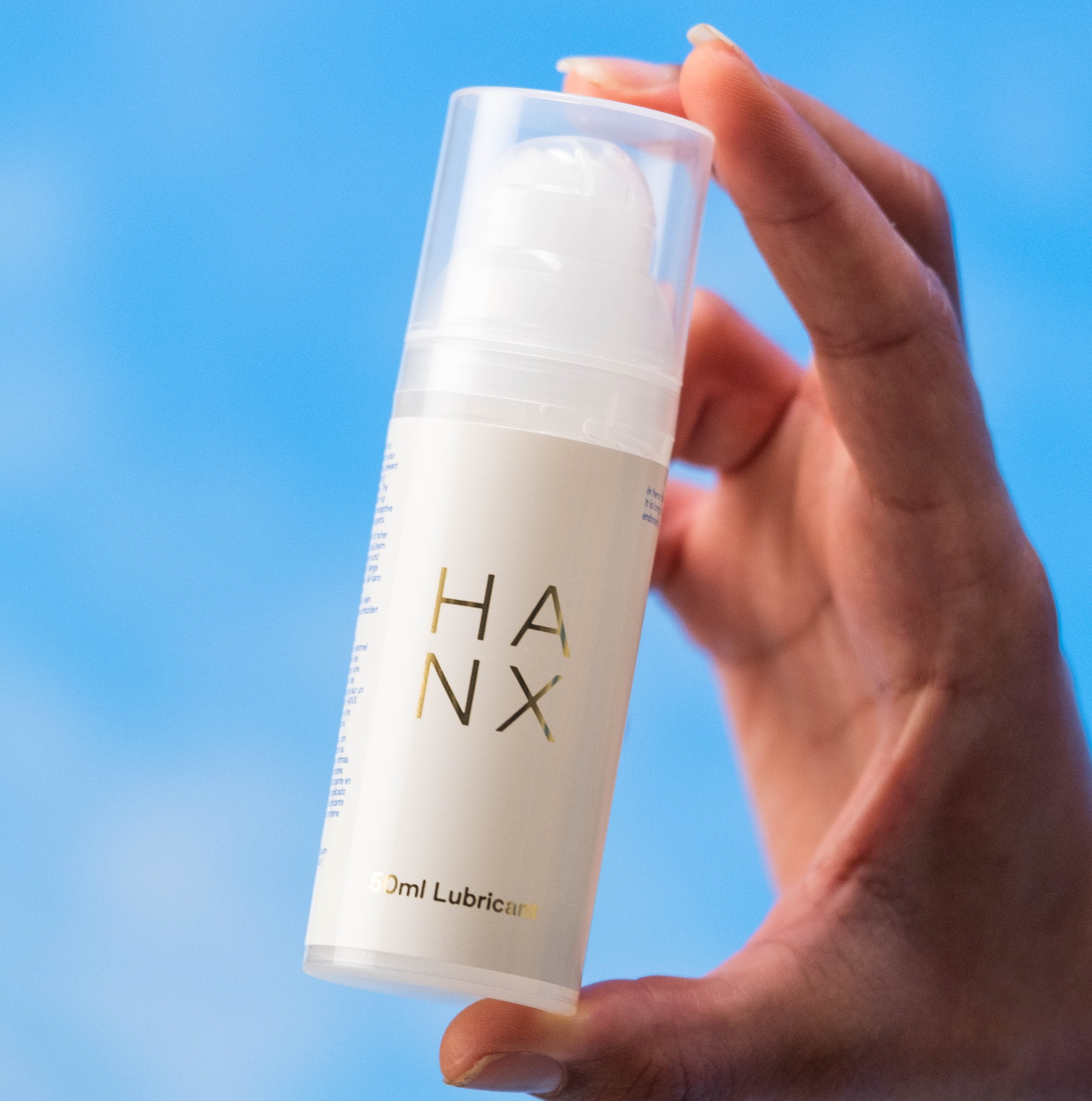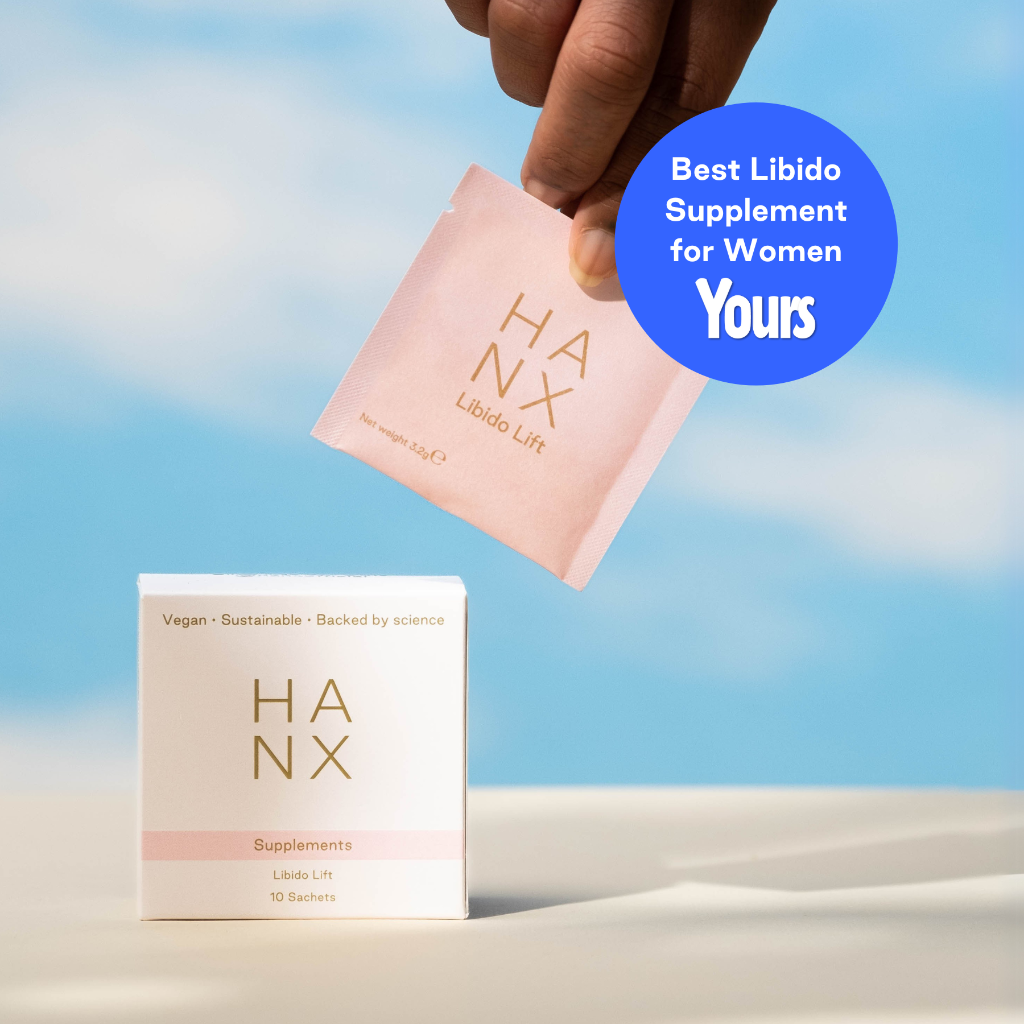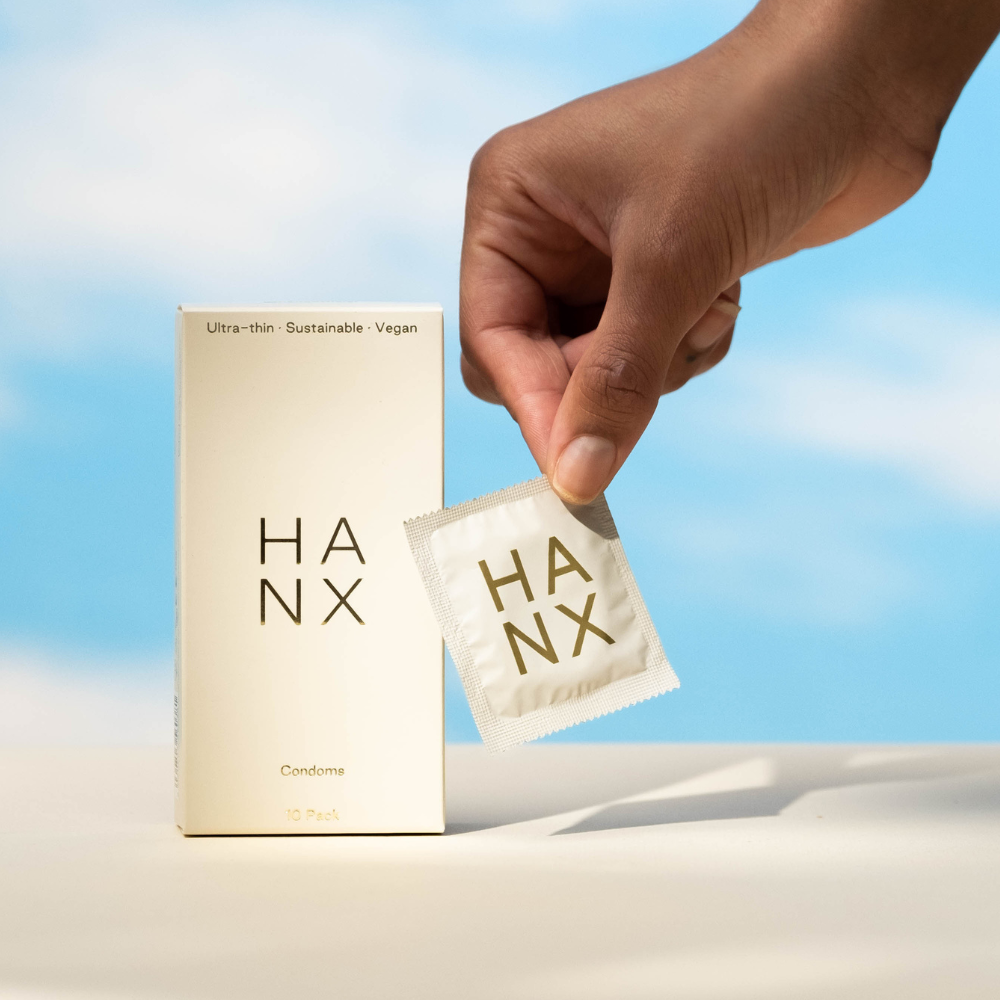Why Aren’t I Getting Wet Even Though I’m Turned On?
Fetch us the loudspeaker: vaginal lubrication, or “being wet”, isn’t always an indicator of how turned on you are. You might be really turned on, but still struggle to get wet, or at least wet “enough” where penetrative sex is comfortable and enjoyable.
Whilst culturally, the vagina and vulva are depicted as mysterious entities with no rhyme or reason when things don't go to plan, we know differently. Henn Mossery-Golan explores some of the more common causes of dryness down there...
Hormonal changes
Hormonal changes, especially those that happen due to breastfeeding, childbirth, or menopause, can affect how wet your vagina gets. These changes impact the level of oestrogen in your body, which can lead to thinning, drying, and inflammation of the vaginal walls. Some choose to use oestrogen creams or hormone replacement therapy to boost their oestrogen levels, but using an extra sensitive, water-based lube, such as HANX's natural formula, is also a great alternative.
Furthermore, the amount of mucus your body produces changes throughout your menstrual cycle. The phase right after ovulation, known as the luteal phase, can increase dryness as mucus production slows down.
Medication
Certain medications, even those that have nothing to do with your vaginal wellbeing, can have an effect on how wet you're getting (and even cause irritation or soreness). These include:
- Antihistamines
- Antiseizure medications
- Sedatives, such as benzodiazepines
- Blood Pressure and Heart Medications, including Beta-blockers and calcium channel blockers.
- Certain cancer drugs
- Decongestants
- Estrogen modulators
- Hormonal birth control
If you’re feeling itchy, or are concerned about some of the side effects of your medication, make sure you speak to your GP or a medical professional.
Stress or anxiety
When you're feeling angsty emotionally, your body can reflect this, too. If you're seeing a very recent change to your wetness level, this could be due to external factors in your life. Breakups, toxic working environments, friendship dramas, pregnancy, the mental load and beyond can all make it harder to slow down and be present during sex, especially if your mind is whirring with the thousand other things you might have going on. Taking time for yourself and resetting is important in helping you get in the mood.
Dehydration
Drink up! Dehydration is a primary cause of vaginal dryness. Drinking plenty of water is essential in maintaining healthy bodily functions. The more water you drink, the better chance your body has of maintaining vaginal lubrication. Being more mindful of actively upping your hydration levels won’t immediately cure the dryness, but it will help prevent it.
A helping hand
Let this be a reminder that there’s nothing wrong with vaginal dryness and you shouldn’t worry about it. That’s why lube was invented - and even if you're not experiencing dryness, it's a lovely little addition to proceeding. If you’re feeling horny, but your mind and your body aren’t quite communicating properly, use a gentle, water-based lube to make sex more enjoyable. Water-based lubes are great as they’re condom and sex toy safe. If you’re a lubey newbie, try out a few different types until you find the one you like - just make sure its glycerin and spermicide free, as these nasty chemicals really won’t do your vagina any favours.
Want more?
- Beauty entrepreneur Trinny Woodall tried our natural Lube. Find out her verdict...
- Can you use condoms and lube together? Sometimes - here's why.






















